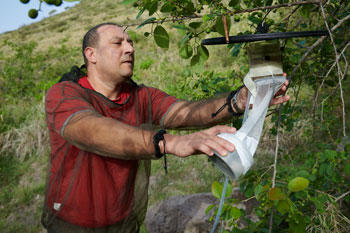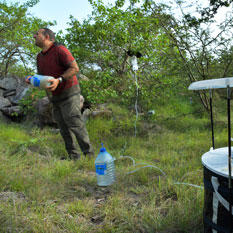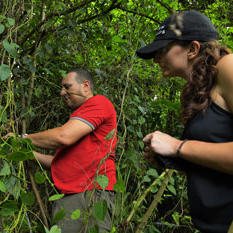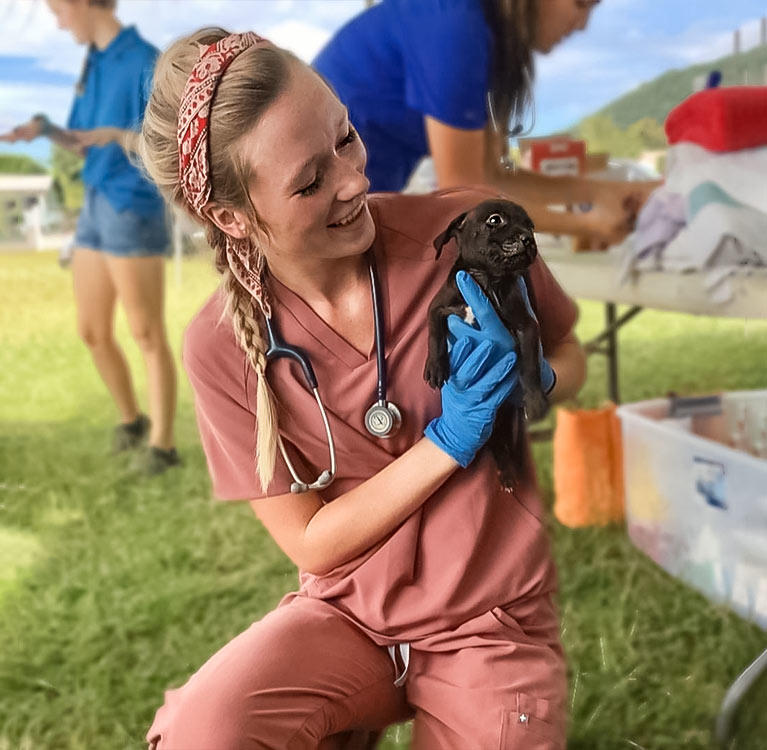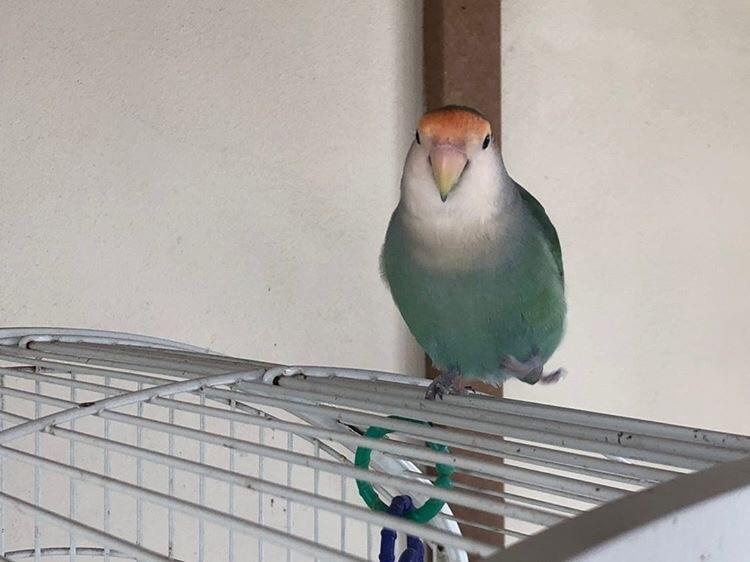Congratulations to Ross University School of Veterinary Medicine’s (Ross Vet) Dr. Matthew Valentine assistant professor, veterinary anatomic pathology and Patrick Kelly, clinical professor, and colleagues Chengming Wang, pathobiology professor, and Md Monirul Hoque, graduate student reporting the presence of Rickettsia felis in mosquitoes on St. Kitts, a research study that was recently published in The Lancet Microbe.
Dr. Valentine, Professor Kelly, and their collaborators at Auburn University tested the three most common, medically important mosquito species on St. Kitts for Rickettsia felis as part of their ongoing research into mosquito borne diseases in the Caribbean. Rickettsia felis, the agent of flea-borne spotted fever, is a vector borne bacterial pathogen that is well known to be transmitted by fleas but recently it has also been detected in mosquitoes elsewhere in the world, and now also in St. Kitts. Uniquely, this is the first time this bacterium has been detected in Aedes aegypti (the Yellow Fever mosquito), Culex quinquefasciatus (the Southern House mosquito) and Aedes taeniorhynchus (the Black Salt marsh mosquito) mosquitoes, which can transmit viral diseases like dengue, chikungunya, West Nile fever, yellow fever and Zika. The correspondence alerts health workers to consider the possibility flea-borne spotted fever in patients with a history of mosquito or flea bites.
“This is, to our knowledge, the first report of R felis in these mosquito species, all of which readily feed on people and are known vectors of viruses including chikungunya, dengue, yellow fever, and Zika viruses (Ae aegypti)”, says Dr. Valentine.
Dr. Valentine’s recent research follows his extensive study of the ecosystems of mosquitoes on St. Kitts. Over 17 months, he led a team of student and community volunteers and collected mosquitoes from all different ecosystems on St. Kitts. The team tested the mosquitoes like Aedes aegypti which are known to transmit viral diseases for Dengue, Chikungunya, and Zika viruses (arboviruses), and looked for new species on the island that might feed on the monkeys that inhabit St. Kitts.
Research in this publication was supported by National Institute of Allergy and Infectious Diseases grant number 1R21AI128407-01 and the Ross University School of Veterinary Medicine. The content is solely the responsibility of the authors and does not necessarily represent the official views of the National Institutes of Health. Pr. Kelly’s grant marks the first time RUSVM has been awarded a grant from the NIH.




